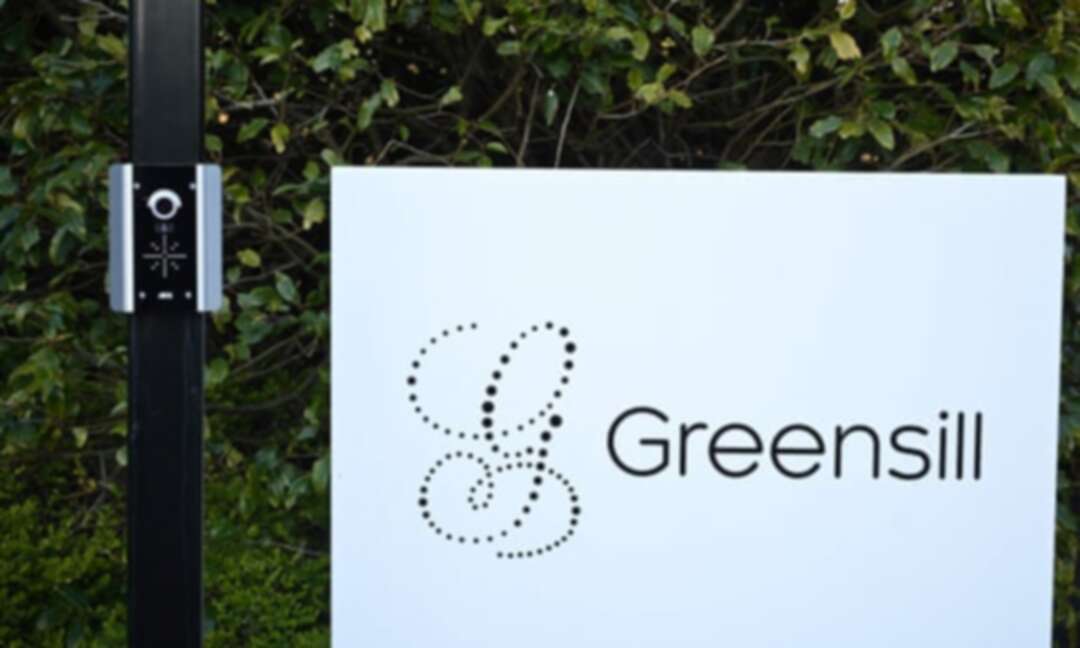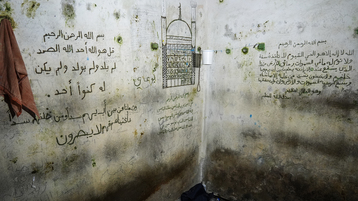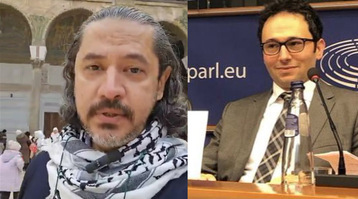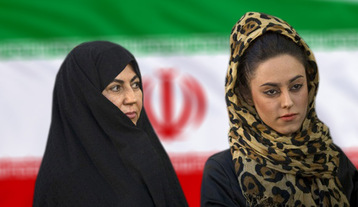-
Second Cabinet Office adviser hired by Greensill while in civil service

David Brierwood joined government in 2014 and two months later was recruited to Greensill Capital
A second Cabinet Office adviser was hired by Greensill Capital while working for the civil service, raising further questions over revolving doors between the government and the scandal-hit firm.
Former Morgan Stanley banker David Brierwood was brought into the heart of government during David Cameron’s administration in 2014, the same year Greensill’s founder Lex Greensill apparently took on a similar role. Two months later, Brierwood was recruited to join Greensill Capital’s board as a director.
Brierwood remained a Greensill director throughout the rest of his Whitehall appointment, which lasted more than three and a half years, according to his LinkedIn profile, which also showed that he resigned from the supply chain finance firm in February this year.
On Tuesday it emerged that the government’s chief commercial officer, Bill Crothers, had joined Greensill while remaining a civil servant – in a move sanctioned by the Cabinet Office. The revelation prompted alarm within No 10 over the growing scandal.
It came as Downing Street started to lose control of its grip on the response to the saga. Three select committees announced probes into the scheme, which is likely to mean cabinet ministers such as the chancellor, Rishi Sunak, and health secretary, Matt Hancock, will be asked to give public evidence.
Brierwood, who advised on government procurement and its management of suppliers, was part of a new breed of “crown representatives” within the Cabinet Office – management consultants and corporate experts meant to help the government liaise with the private sector and identify ways to save money.
Within months of joining the Cabinet Office in October 2014, he was recruited to join Greensill Capital’s board as a director.
He was one of a string of former officials and paid representatives in the Cabinet Office and wider government – including former primer minister David Cameron, former home secretary David Blunkett, former homelessness tsar Dame Louise Casey and Crothers – that Greensill targeted for hire. There is no suggestion of wrongdoing by Greensill’s hires.
Nick Davies, programme director at the Institute for Government, said the revelation about Brierwood raised further questions about the inadequacy of impartiality rules at the heart of government.
“Crown representatives play an important role managing the relationship between government and key suppliers,” he said.
“Whether or not individuals breached the rules, Greensill clearly thought it would benefit from hiring a network of people with senior positions in the Cabinet Office.
“The inadequacy of current rules means that we can’t be sure whether government decisions have been shaped through private channels by those with a financial interest in the outcome.”
Labour’s Rachel Reeves said there were growing questions about Greensill’s reach.
“We’ve been saying Tory sleaze is back, but in many ways it seems it never really went away,” she said.
“Revelations like this keep growing the web of the Greensill scandal, and show us how much the Conservatives have weakened the measures meant to keep cronyism and conflicts of interest in government in check.”
Crown representatives, which can be part-time roles, work within the Cabinet Office and take charge of the relationship with large suppliers across government, to act as a single point of contact for the whole of government.
Unlike full-time civil servants, they are more likely to have other roles in the private sector. Lex Greensill was described as a crown representative, though that title has raised eyebrows in Whitehall. “It is not the kind of job you can combine while running your own major international company,” one source said.
A Cabinet Office spokesperson said: “Crown representatives do not participate in the procurement process nor are they able to award any contracts.
“They are part-time senior executives recruited for their working knowledge of a sector to help ensure value for money for the taxpayer.
“All crown representatives go through regular propriety checks and cannot work with a supplier where there could be a conflict of interest. Mr Brierwood’s crown representative role was not anything to do with supply chain finance.”
The revelation came as the business appointments watchdog said that Crothers had breached rules by failing to declare a trustee role he took up within a year of leaving office.
On Thursday, Lord Pickles, chair of the Advisory Committee on Business Appointments (Acoba), wrote to Cabinet Officer minster Michael Gove to say that Crothers had broken rules that require ministers and ex-civil servants to declare any paid or unpaid role taken within two years of leaving office.
Crothers worked in Whitehall for eight years, including as the government’s chief commercial officer overseeing £40bn of annual government spending.
It emerged on Tuesday that he started advising Greensill two months before he left the civil service in November 2015, with approval from the Cabinet Office. He became a Greensill board member in August 2016 and accrued a shareholding estimated to be worth $8m (£5.8m) in 2019.
Crothers became an unpaid trustee of the industry body, the Chartered Institute of Procurement and Supply, in November 2016 but did not inform Acoba at the time.
In a letter informing Acoba of the breach, Crothers said: “I am afraid that when appointed, I did not think that Acoba approval was required due to it not being a not-for-profit charity and an unpaid trustee role. I am sorry for this honest mistake.”
Crothers separately contested that he had misled Acoba when it was asked to issue advice on plans to launch his independent consultancy firm, Commercial Common Sense, nearly a year after it was incorporated in September 2015. He said all the business conducted over that year was linked to invoices that had already been approved. The Guardian has attempted to contact Brierwood.
On Thursday, Downing Street was forced to defend the Conservative peer Francis Maude, who is implementing changes in Whitehall for Boris Johnson.
Maude, who runs his own consulting firm – which he set up with Johnson’s deputy chief of staff, Simone Finn – recruited Crothers to the Cabinet Office during the Cameron administration and contracted him to work for his firm, Francis Maude Associates, after leaving office.
Downing Street rebuffed calls for Maude to step back from his role in the Cabinet Office while an independent inquiry into the lobbying scandal, chaired by the corporate lawyer Nigel Boardman, is carried out.
“This is an individual who brings a huge amount of relevant experience to this role,” Johnson’s spokesperson said.
No 10 had hoped to contain the response to the growing scandal by launching the Boardman inquiry where evidence can be given in private, though Johnson said it would have “carte blanche” to recommend changes.
But mounting pressure meant three select committees of MPs announced plans to carry out their own probe. The public administration and constitutional affairs committee formally announced on Thursday morning it would conduct a full inquiry into lobbying rules.
The Treasury select committee said it would look at the appropriateness of Sunak and Treasury officials’ responses to Cameron’s lobbying efforts and regulatory lessons from the collapse of Greensill Capital last month.
On Thursday, the public accounts committee, chaired by Labour MP Meg Hillier, announced it would launch an inquiry into supply chain financing and Covid corporate financing facilities – the fund to which Cameron hoped to gain access on behalf of Greensill. The former prime minister will be invited to give evidence.
source: Kalyeena Makortoff
Levant
You May Also Like
Popular Posts
Caricature
BENEFIT AGM approves 10%...
- March 27, 2025
BENEFIT, the Kingdom’s innovator and leading company in Fintech and electronic financial transactions service, held its Annual General Meeting (AGM) at the company’s headquarters in the Seef District.
During the meeting, shareholders approved all items listed on the agenda, including the ratification of the minutes of the previous AGM held on 26 March 2024. The session reviewed and approved the Board’s Annual Report on the company’s activities and financial performance for the fiscal year ended 31 December 2024, and the shareholders expressed their satisfaction with the company’s operational and financial results during the reporting period.
The meeting also reviewed the Independent External Auditor’s Report on the company’s consolidated financial statements for the year ended 31 December 2024. Subsequently, the shareholders approved the audited financial statements for the fiscal year. Based on the Board’s recommendation, the shareholders approved the distribution of a cash dividend equivalent to 10% of the paid-up share capital.
Furthermore, the shareholders endorsed the allocation of a total amount of BD 172,500 as remuneration to the members of the Board for the year ended 31 December 2024, subject to prior clearance by related authorities.
The extension of the current composition of the Board was approved, which includes ten members and one CBB observer, for a further six-month term, expiring in September 2025, pending no objection from the CBB.
The meeting reviewed and approved the Corporate Governance Report for 2024, which affirmed the company’s full compliance with the corporate governance directives issued by the CBB and other applicable regulatory frameworks. The AGM absolved the Board Members of liability for any of their actions during the year ending on 31st December 2024, in accordance with the Commercial Companies Law.
In alignment with regulatory requirements, the session approved the reappointment of Ernst & Young (EY) as the company’s External Auditors for the fiscal year 2025, covering both the parent company and its subsidiaries—Sinnad and Bahrain FinTech Bay. The Board was authorised to determine the external auditors’ professional fees, subject to approval from the CBB, and the meeting concluded with a discussion of any additional issues as per Article (207) of the Commercial Companies Law.
Speaking on the company’s performance, Mr. Mohamed Al Bastaki, Chairman BENEFIT , stated: “In terms of the financial results for 2024, I am pleased to say that the year gone by has also been proved to be a success in delivering tangible results. Growth rate for 2024 was 19 per cent. Revenue for the year was BD 17 M (US$ 45.3 Million) and net profit was 2 Million ($ 5.3 Million).
Mr. Al Bastaki also announced that the Board had formally adopted a new three-year strategic roadmap to commence in 2025. The strategy encompasses a phased international expansion, optimisation of internal operations, enhanced revenue diversification, long-term sustainability initiatives, and the advancement of innovation and digital transformation initiatives across all service lines.
“I extend my sincere appreciation to the CBB for its continued support of BENEFIT and its pivotal role in fostering a stable and progressive regulatory environment for the Kingdom’s banking and financial sector—an environment that has significantly reinforced Bahrain’s standing as a leading financial hub in the region,” said Mr. Al Bastaki. “I would also like to thank our partner banks and valued customers for their trust, and our shareholders for their ongoing encouragement. The achievements of 2024 set a strong precedent, and I am confident they will serve as a foundation for yet another successful and impactful year ahead.”
Chief Executive of BENEFIT; Mr. Abdulwahed AlJanahi commented, “The year 2024 represented another pivotal chapter in BENEFIT ’s evolution. We achieved substantial progress in advancing our digital strategy across multiple sectors, while reinforcing our long-term commitment to the development of Bahrain’s financial services and payments landscape. Throughout the year, we remained firmly aligned with our objective of delivering measurable value to our shareholders, strategic partners, and customers. At the same time, we continued to play an active role in enabling Bahrain’s digital economy by introducing innovative solutions and service enhancements that directly address market needs and future opportunities.”
Mr. AlJanahi affirmed that BENEFIT has successfully developed a robust and well-integrated payment network that connects individuals and businesses across Bahrain, accelerating the adoption of emerging technologies in the banking and financial services sector and reinforcing Bahrain’s position as a growing fintech hub, and added, “Our achievements of the past year reflect a long-term vision to establish a resilient electronic payment infrastructure that supports the Kingdom’s digital economy. Key developments in 2024 included the implementation of central authentication for open banking via BENEFIT Pay”
Mr. AlJanahi concluded by thanking the Board for its strategic direction, the company’s staff for their continued dedication, and the Central Bank of Bahrain, member banks, and shareholders for their valuable partnership and confidence in the company’s long-term vision.
opinion
Report
ads
Newsletter
Subscribe to our mailing list to get the new updates!






















